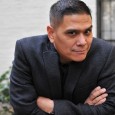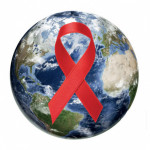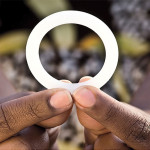I want to talk about sex. It’s a big deal. There are laws about it, social norms about it, and then there’s what we do. Most of us do it, or want to. We don’t always get the sex we want, we don’t always like the sex we get. But it’s there everyday, if we want to.
I tested positive in 1998 (or 1999, who can keep track?). My boyfriend broke up with me - for a lot of reasons, but at the time I needed to believe it was because of the HIV. He was the first man I loved, and the first man I knew loved me. So I took it personally.
Sex has been a central part of how I organized my life. When I was younger, I was scared of the desires I felt for men. It was the 1980s - there was no Lil Nas X. Most of the stories about gay men ended in suicide or violence. And most of those gay men did not look like me.
As I got older and started having sex, I found out I could do it everyday with different people. My 20s were a blur of bars, one-night stands, peep shows and dark rooms. Online sex sites made it easier and I fell into them wholeheartedly.
After testing positive, I found it complicated to date HIV-negative men. When to tell? Who to tell?
And the condoms! Before, when I slipped I would have an anxious two weeks until the HIV test came back. After I tested positive, I felt like condoms were mandatory for everything and everyone. I eventually met another positive guy who laughed at me. We both have it, what’s really going to happen?
I don’t remember his name, but I do remember the fun, the sense of freedom, the feeling of being sexy again. I serosorted for a long time - websites made it easier after I figured out the codes. “Down for anything”, “BB”, “raw” all became signs for me - either they were already positive or they didn’t know or it was not their concern. For dating, HIV-status was important to me.
About ten years ago, I left HIV organizations for a position as a professor. I started meeting men in academic settings, men who had no idea about my HIV-status. Disclosure became an issue again. How do I tell people? When? I avoided the HIV-negative men because it seemed important for a lot of reasons including not having to deal with the differences in experience.
Then I started meeting men on PrEP. They didn’t seem to care about my HIV-status. They asked if I was virally suppressed; they told me they were on PrEP. They didn’t like condoms. So it all seemed good.
The actual sex was more complicated. After decades of messages about how dangerous my sero-status was, these HIV-negative men had a hard time with not using a condom - even with head. I understood it. So many public health officials disagreed with my serosorting - claiming that we could reinfect, that we were still a danger, a risk. Was sex ever going to be fun and free for me after the diagnosis?
I am still learning how to date men on PrEP. As someone living with HIV who is virologically suppressed, it’s still new to have the kinds of sex I want with a man who is HIV-negative. I have been trained to think about myself and my body in a certain way because I have HIV: dangerous, unworthy, better to be alone. But I have to refuse that narrative and push forward. Towards connection and sex.
There remains a silence about sex - especially gay sex. We need more spaces for this discussion - what we like, what we are scared of, what we haven’t tried yet and why, consent, sex work... And more.
In 1987, Douglas Crimp wrote “sex is not, in an epidemic or not, limited to penetrative sex” and we can be open to the “great multiplicity of those pleasures.” It is 2021 and those words still resonate, even as we survive another pandemic. I want to be able to touch again, strangers in a dark room, and kiss men in a bar. I want us to cherish our sex again - as people living with HIV and as gay men - and demand our rights to a thriving sex life.








1 Comment
1 Comment